
By Aaron Tay, Head, Data Services
We wrote about our subscription to Scopus AI in April 2025 and since then Scopus AI has been updated with improvements.
One of the most significant improvements was the addition of Scopus Deep Research to the Scopus AI system.
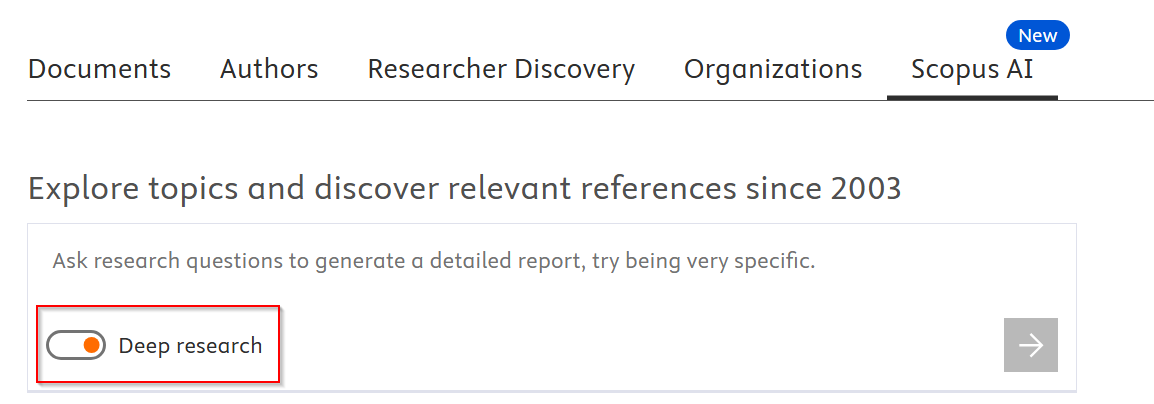
Elsevier describes Scopus Deep Research as such
Deep Research leverages agentic AI, with a reasoning engine designed to support complex research workflows. When you ask a question, it goes beyond summarizing information - it develops a detailed research plan, conducts extensive searches across Scopus' curated literature and refines its strategy as new insights emerge. All steps are guided by carefully designed prompts to uphold academic standards. Its findings are synthesized and shared in a nuanced, in-depth and downloadable report.
Also see our article - "Deep Research" Literature tools what are they and how are they different?
Like most deep research tools, it shows you it's thinking and plans and goes off to do it. But unlike OpenAI Deep Research, Gemini Deep Research or Undermind.ai, it doesn't ask more questions to clarify your intent but goes off immediately to search.
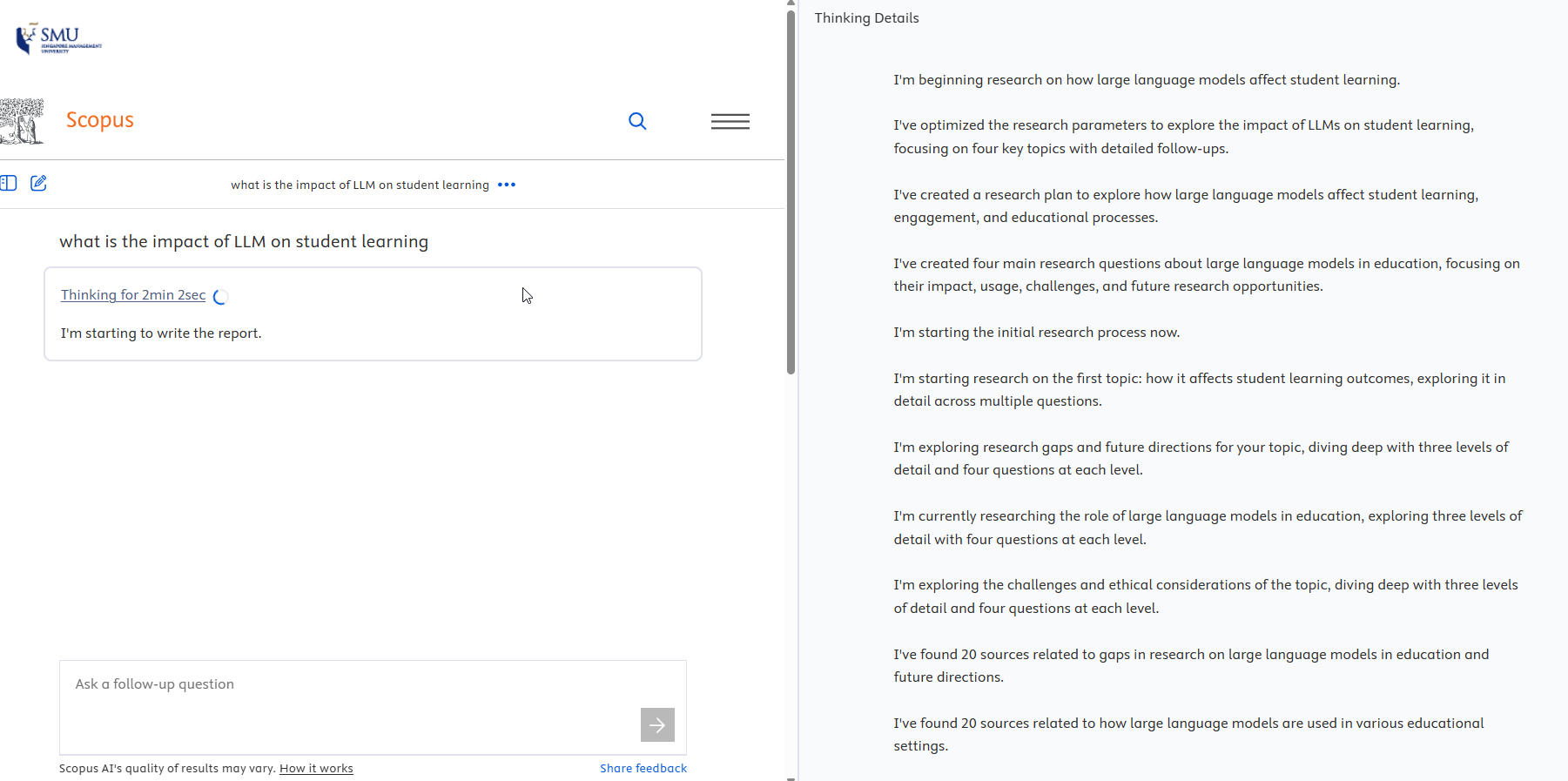
Scopus Deep Research runs for 2-3 minutes which is longer than Scopus AI without Deep Research but still much faster than other web and academic Deep Research tools like Undermind.ai, OpenAI Deep Research.
That said being a Deep Research tool, it does find more citations and generates longer reports.
In our sample report, Scopus Deep Research generates a 9 paper report (16 page in total including reference list) with 95 references. This was a very broad question on the impact of LLM on student learning, more specific questions would use fewer references.
Scopus blog post also has Six tips for using Scopus AI Deep Research.
ScienceDirect AI is on trial to Oct 30, 2025
We are currently on a trial to ScienceDirect AI up to Oct 30, 2025. Note that this is a seperate subscription from the existing Scopus AI.
Compared to Scopus AI, ScienceDirect AI uses the ScienceDirect data instead of Scopus data. This means that while Scopus AI only has access to title and abstract of papers from multiple publishers, ScienceDirect AI will have access to not just the title and abstracts of papers but also the full-text of papers and ebooks on the platform. However, unlike Scopus AI which spans multiple publishers, ScienceDirect AI focuses mostly on Elsevier journals.
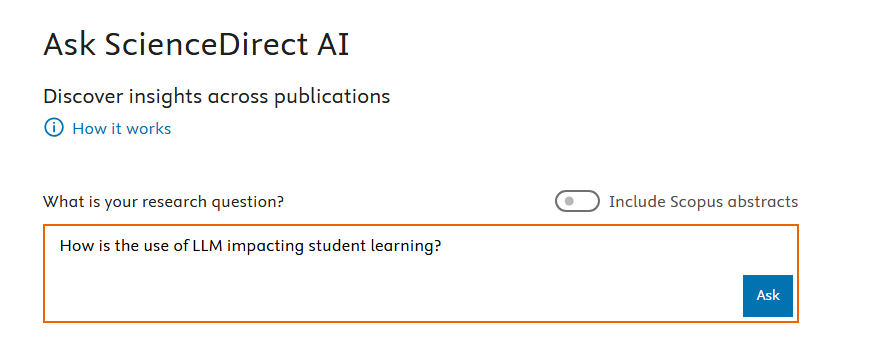
That said you can search both ScienceDirect AI full-text AND Scopus abstracts by turning on the switch "include Scopus abstracts"
ScienceDirect AI has 3 main functions
- Direct answer to query
- Reading Assistant
- Compare Experiment
Read more about ScienceDirect AI.
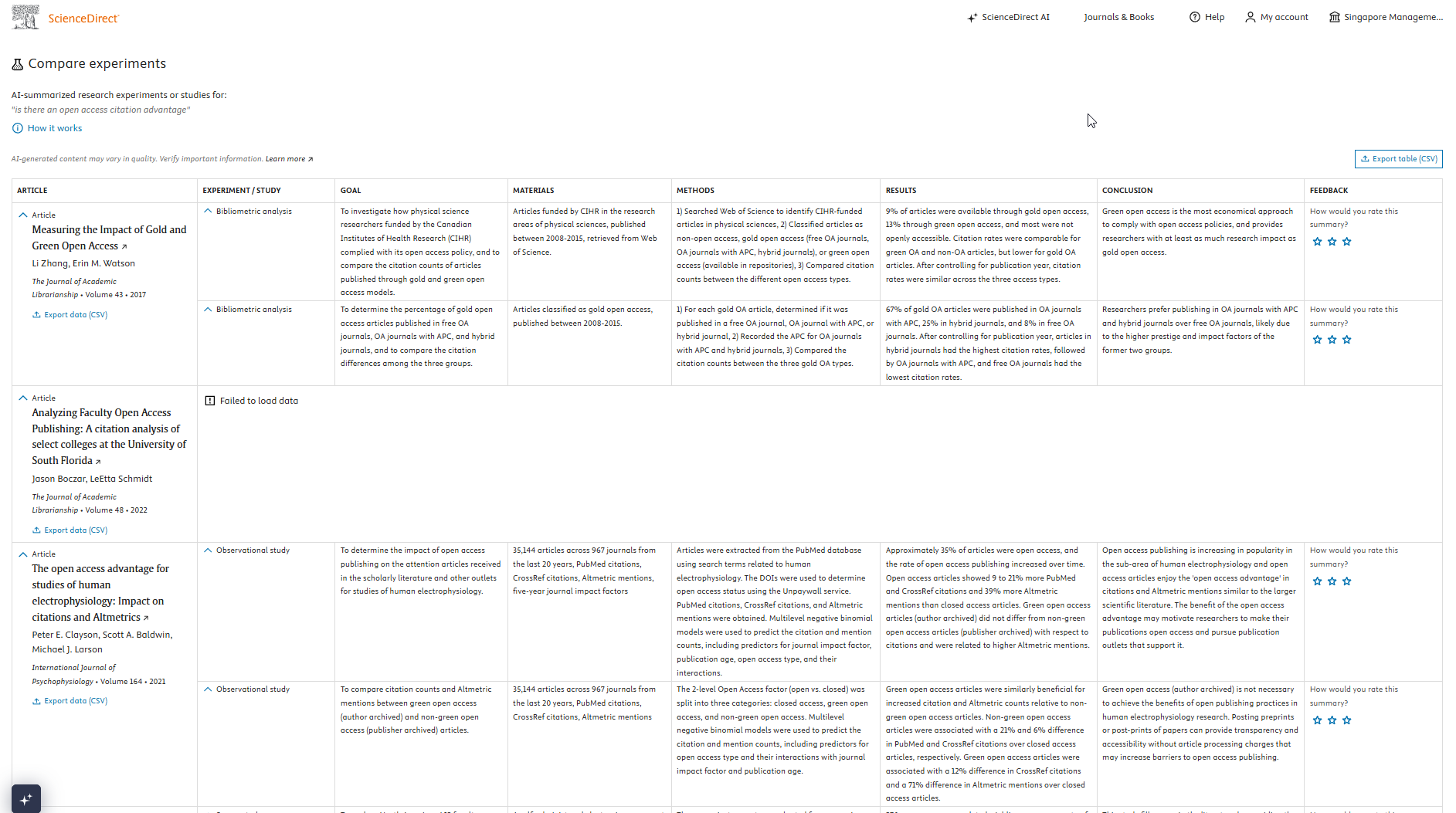
Most of you are probably familiar with similar features in other AI-powered academic search tools such as Undermind, SciSpace etc but the promise of ScienceDirect is that it is done over full-text of Elsevier articles and ebooks.
To access ScienceDirect AI, go to the home page of ScienceDirect and click on the link that says "ScienceDirect AI" at the top of the screen.
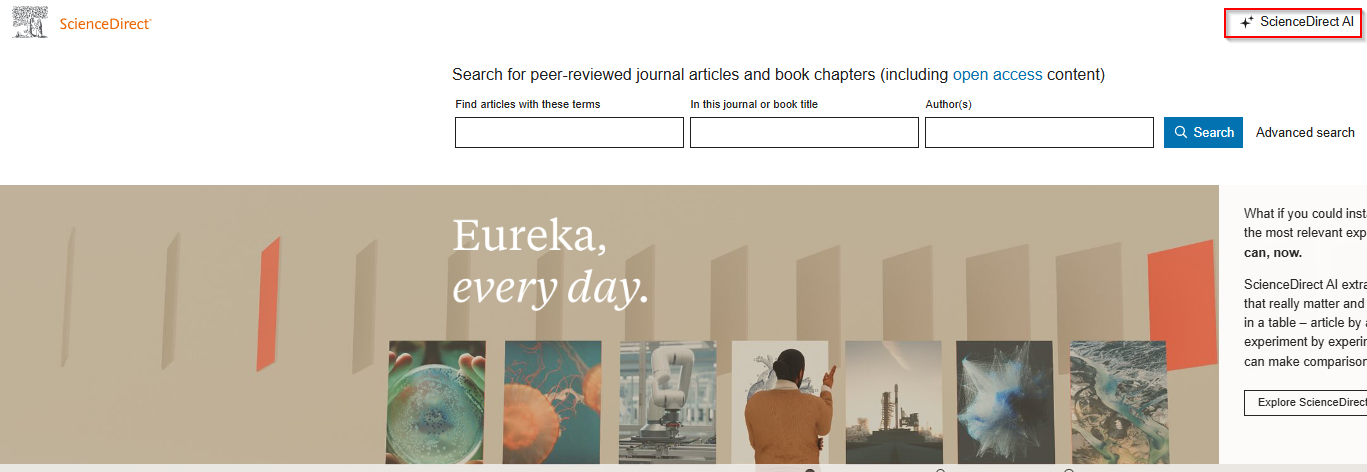
We need your feedback to help decide whether to subscribe to ScienceDirect AI! Please let us know your feedback on this new tool.